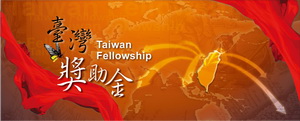NCL co-hosted the “Taiwan Lecture on
Chinese Studies” series on October 16, 2021, at 8 am (Taiwan time) with the
University of Texas at Austin. Prof. Chih-ming Wang gave the online talk on
“Rearticulations of Foreign Literature Studies in Taiwan: Anti-Romanticism and
the Translation of Subjectivity”.
Prof. Chih-ming Wang is an Associate Research Fellow
at the Institute of European and American Studies, Academia Sinica, and the
chief editor of Router: A Journal of Cultural Studies in Taiwan. He is the
author of Transpacific Articulations: Student Migration and the Remaking of
Asian America and the co/editors of various projects on transpacific cultural
studies.
This talk revisits the institutional/intellectual
history of foreign literature studies as a discipline in Taiwan through the
lenses of colonial modernity and traveling theory. Prof. Wang contends that the
discipline of foreign literature studies is fundamentally a project of
re-articulation—in terms not only of recreating the Western literature in local
contexts, but also of resignifying it in the global/local nexus of humanities
scholarship and social-political transformations. To explain such historical formations
of the discipline, Prof. Wang focuses on two examples: CT Hsia’s literary
modernism as a form of anti-Romanticism in the Cold War era and the translation
of subjectivity as zhutixing in post martial law Taiwan. While Hsia
rearticulates literary criticism as a political rectification, the birth of
zhutixing as a translingual concept literalizes the power of theory in the
making of a postcolonial Taiwan.
The lecture was held online with an introduction of
Prof. Wang by Prof. Luke Waring (Department of Asian Studies, CEAS) and
moderated by Prof. Kirsten Cather (Center for East Asian Studies, CEAS). Prof.
Sung-Sheng Yvonne Chang (Center for Taiwan Studies, CTS) also joined the
Q&A discussion after the talk.










